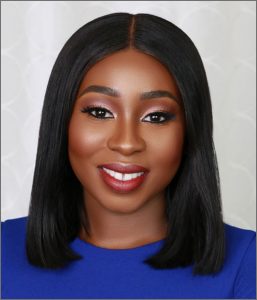
Cannabis Q&A
Adeola Sonaike, PhD, MPH, CHES
Senior Vice President, Health & Innovation
The Family Resource Network
Epilepsy Services of New Jersey
Dr. Sonaike is a founding board member of Epilepsy Alliance America, the Board Chair of the Health Leadership Legacy Project and Chair of the National Caregivers Conference.
There is evidence from laboratory studies, anecdotal reports, and small clinical studies over the years that medicinal cannabis can potentially help control seizures. What is your organization's position on medicinal marijuana?
The goal is always to support individuals and families impacted by epilepsy and seizures — and any therapeutics that are recommended by a person’s medical physician should, in our opinion, be followed in order to alleviate the impact of seizures. We want people to partner with their medical providers to identify the best treatments for them. Seizures and epilepsy in general are very complex spectrum conditions, and it impacts people differently. We also want to see the use of CBD or any hemp-derived product receive the same rigorous R and D as any other therapy.
Are you finding that people in your community are using New Jersey's medicinal marijuana program for treatment?
Yes. It’s on a case-by-case basis. When families call us with an interest in cannabis we refer them to an epileptologist (A neurologist who specializes in epilepsy). You need to keep in mind, especially around the use of medical marijuana among people with epilepsy, that people are still on other medications. If you are going to add a medication to your current treatment program that’s a conversation you must have with your physician. We’re very fortunate here in the state of New Jersey to have many epilepsy centers, and we do refer families and individuals to the epileptologists at those centers who have done thorough research and review of any medicinal therapeutic they’re going to recommend to patients.
You are calling for more research. What do you see as barriers to research of medicinal cannabis?
The biggest barrier, in my opinion, is the fact that here in the United States marijuana is a Schedule I drug, which means there are no accepted medical uses and a high chance of abuse. At the same time, we’ve seen FDA approval of Epidiolex, the first approved drug that contains a substance derived from marijuana. It was approved to treat two rare and severe forms of epilepsy. And I think public opinion plays a significant role here. You do have to remember that our physicians are human beings, too. And they do come with their own opinions and biases to what we know as the social and historical issues surrounding marijuana and the criminalization of marijuana in the United States.
What’s fascinating when you look at the history of Epidiolex, it took a family, a parent, to contact researchers in the United Kingdom to get this treatment into the United States. And when you work with individuals and families who are having intractable seizures, any form of relief that will not result in an impairment of quality of life is always preferred.
How to you want to see things change?
I think that there are two conversations that need to be had. One is, what kind of quality life are individuals seeking as they seek treatments for their epilepsy? And then the medical system and the pharmaceutical industry need to make sure that not only are they conducting further research — as they would for any therapy —but that they’re also providing education — as they would with therapeutic. Before any drug goes to market, physicians need to be thoroughly educated on the benefits and the side effects. And I think that all of this information needs to be done at an even greater scale because in this situation your first goal is to overcome some of those biases that are associated with recreational marijuana.
Are you finding that there are some physicians are more open to prescribing or comfortable and educated about cannabis compared to others who are treating patients with epilepsy?
Absolutely. I think with any form of therapy new to the market there are going to be the early adopters, and there are going to be those who take a little bit longer to accept that this is an alternative form of treatment. I feel that it’s important that families are educated. The patient and the caregiver are the strongest advocates. And at some point, maybe a parent will opt to go and see a physician who is much more open to exploring the option that medical marijuana. I don’t think that you can say definitely “yes” or definitely “no” to any therapeutic — everything does have side effects.
How do you see CERI supporting the goals of Epilepsy Services of New Jersey?
I think that what you’re doing at CERI is valuable. One of my concerns when it comes to the legalization of recreational marijuana becomes the disparities in access to care. My concern is that the lack of culturally competent health information surrounding medical marijuana will result in individuals who do not have access to an epileptologist who can prescribe a thoroughly tested and approved strain — that they will end up purchasing it from some of these third party providers. And so I think that from an educational standpoint, it is going to be really important that we are doing due diligence and ensuring that the information, and the education, and the research that the groups like CERI are doing are getting to those who are more likely to fall into the wrong hands when it comes to the distribution of marijuana. You will have individuals who will be told the marijuana sold down the street is significantly cheaper than cannabis at an approved dispensary. If legalization happens in New Jersey, we do intend to host a symposium for patients and their families to learn about verified vendors and gain more information. I know CERI is interested in supporting this effort.
